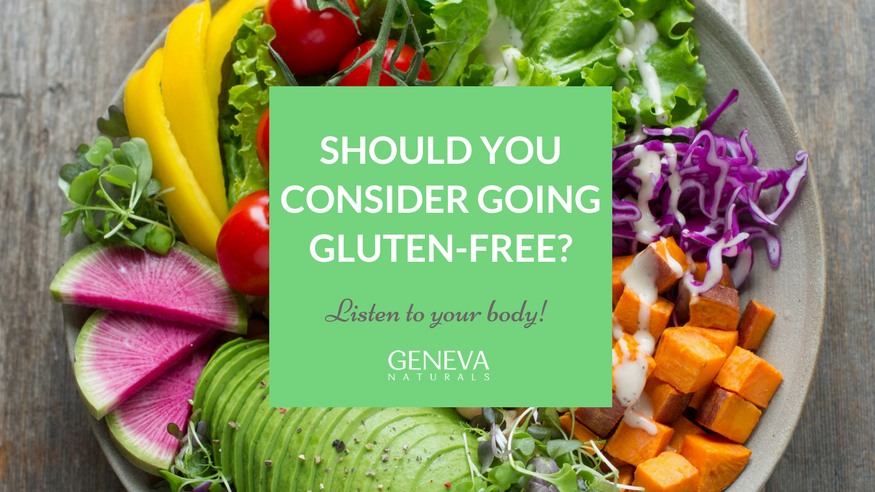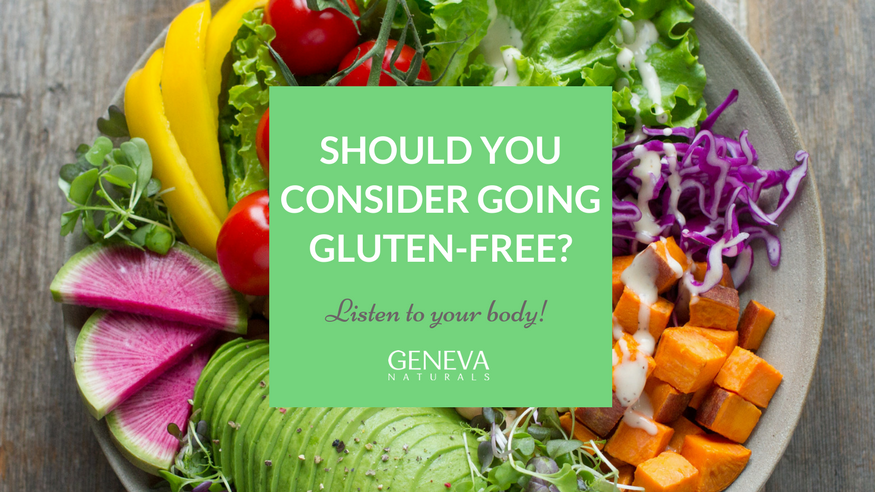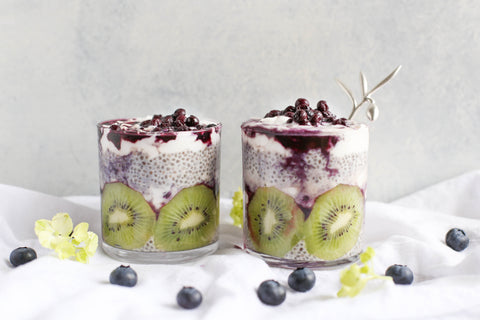Signs You Should Consider Going Gluten-Free


It seems like all that’s talked about these days is gluten. More and more people find themselves limiting their gluten intake, or eliminating it all together. Why are so many individuals making the shift to gluten-free? Because having an adverse reaction to gluten is fairly common, with around 12% of the population experiencing side-effects after eating it. Let's take a look at what gluten is, the different types of reactions people have, and signs of a gluten allergy or intolerance.
What is Gluten?
In order to understand if your body tolerates gluten, it’s important to understand what it is. Simply put, gluten is a protein found in wheat, barley and rye.
Wheat, rye, and barley have been heavily manipulated over the past 10 years to withstand famine, heavy pesticides, and the changing climate, making the grain almost unrecognizable to our systems. Because of this, gluten intolerances and gluten sensitivities are more prevalent than ever.
Types of Gluten Reactions
Celiac disease is the most severe reaction one can have towards gluten. This autoimmune disease only affects about 1% of the population, but is severe enough to lead to irreversible damage to the digestive system. Eliminating all forms of gluten, including possible cross contamination, can be a life or death matter for some celiac disease sufferers.
The more common diagnosis is a mild-to-moderate sensitivity to gluten, which is less severe than celiac disease, but can cause internal damage nonetheless.
Switching to organic, non-GMO gluten products should be your first step if any discomfort is felt after eating gluten. But if issues still persist, consider cutting out gluten all together.
Signs of Gluten Allergy or Intolerance

1. Upset Stomach
Pain in the abdomen is the most common symptom of a gluten sensitivity, with over 80% of gluten intolerant individuals experiencing this side effect.
2. Bloating
Having an extended abdomen, also known as bloating, is a large indicator of a gluten sensitivity. When the body has an adverse reaction to food that’s consumed, it creates a special type of stomach acid to fight the foreign particles. This often creates excess gas buildup in the intestines which leads to bloating.
3. Diarrhea or Constipation
When the body creates acid in an attempt to digest difficult foods, this damages the gut lining, leading to poor nutrient absorption. Poor absorption results in apparent digestive discomfort and frequent diarrhea or constipation.
4. Headaches
Recent gluten-related studies have revealed that gluten-intolerant or gluten sensitive individuals may be more prone to migraines. If the body doesn’t like gluten but gluten is consumed, the body may enter “fight” mode, making the entire system more tense than normal. This extra tension can cause the vertebras in the neck and spine to become inflamed and shift out of alignment, causing misalignment that often shows itself in the form of headaches and migraines.
5. Skin Issues
A blistering skin condition, dermatitis herpetiformis, is the skin manifestation of celiac disease. Other skin conditions that can drastically improve with a gluten-free diet are psoriasis, chronic urticaria, alopecia areata.
6. Weight Loss
Although unexplained weight loss can stem from various reasons, it’s a common side effect of undiagnosed celiac disease with two-thirds of patience reporting this issue. Weight loss can be caused by a poor absorption of nutrients, which happens when the intestinal tract is under attack.
Other symptoms:
- Depression
- Weight loss
- Joint pain
- Anxiety
- Autoimmune diseases
- Inflammation
- Brain fog
Even if you do not have celiac disease or a high sensitivity to gluten, try reducing the amount of gluten you eat for a week and see if you notice any difference in your overall health and well-being. Another thing to try? Our anti-aging skin care line that, once you use for a week, you'll never stop!
Also in Geneva Naturals

What Is A Retinoid Oil? Retinoid Oil Benefits, Uses, Effects & More

DIY Clay Mask Recipes for Clear Skin



